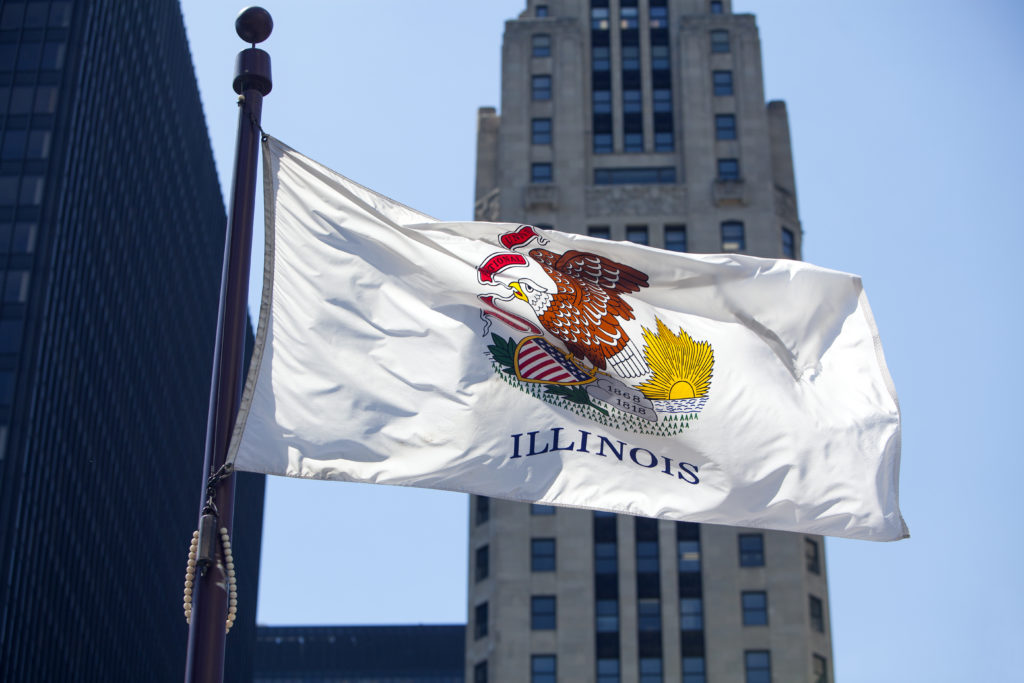
Wolters Kluwer: Timeliness No. 1 among Top 10 P&C insurance compliance snags
By onBusiness Practices | Education | Insurance | Legal | Market Trends
A researcher called missed claims deadlines “the top of the list once again” in Wolters Kluwer’s latest annual study of P&C insurer behavior appearing in state department of insurance public market conduct actions.
Wolters Kluwer senior compliance counsel Kathy Donovan said the transactional nature and frequency seen in certain insurance lines — “especially automobile” — pose “multiple opportunities for some of those timeframes to be missed.”
States might vary in deadlines for auto insurers and other property and casualty lines. But the National Association of Insurance Commissioner’s model regulation for unfair P&C claims settlement practices offers an example of the kind of clocks your state might have established on auto claims.
Section 6 of the template requires:
A. Every insurer, upon receiving notification of a claim shall, within fifteen (15) days, acknowledge the receipt of such notice unless payment is made within that period of time. …
B. Every insurer, upon receipt of any inquiry from the insurance department respecting a claim shall, within twenty-one (21) days of receipt of such inquiry, furnish the department with an adequate response to the inquiry in duplicate.
C. An appropriate reply shall be made within fifteen (15) days on all other pertinent communications from a claimant which reasonably suggest that a response is expected.
Section 7 states:
A. Within twenty-one (21) days after receipt by the insurer of properly executed proofs of loss, the first party claimant shall be advised of the acceptance or denial of the claim by the insurer. No insurer shall deny a claim on the grounds of a specific policy provision, condition or exclusion unless reference to such provision, condition, or exclusion is included in the denial. The denial must be given to the claimant in writing and the claim file of the insurer shall contain documentation of the denial as required by Section 4. …
B. If the insurer needs more time to determine whether a first party claim should be accepted or denied, it shall so notify the first party claimant within twenty-one (21) days after receipt of the proofs of loss, giving the reasons more time is needed. If the investigation remains incomplete, the insurer shall, forty-five (45) days from the initial notification and every forty-five (45) days thereafter, send to the claimant a letter setting forth the reasons additional time is needed for investigation. …
D. No insurer shall continue negotiations for settlement of a claim directly with a claimant who is not legally represented, if the claimant’s rights may be affected by a statute of limitations, unless the insurer has given the claimant written notice of such limitation. Notice shall be given to first party claimants at least thirty (30) days and to third party claimants at least sixty (60) days before the date on which such time limit may expire. …
F. The insurer shall affirm or deny liability on claims within a reasonable time and shall tender payment within thirty (30) days of affirmation of liability, if the amount of the claim is determined and not in dispute. In claims where multiple coverages are involved, payments which are not in dispute and where the payee is known should be tendered within thirty (30) days if such payment would terminate the insurer’s known liability under that individual coverage.
Some states might put further deadlines on insurers, such as New Jersey requiring insurers to inspect a vehicle in seven days or waive that right.
Missed deadlines
During a webinar Sept. 8, Donovan shared four state examples of P&C insurers raising regulator eyebrows for allegedly blowing deadlines. At least two of the four examples involved auto claims behavior.
In one passage partly highlighted by the webinar, the Illinois Department of Insurance told First Acceptance:
When a property damage liability claim remains unresolved for more than 60 calendar days from the date the loss is reported, a delay letter is to be provided the third party claimant as outlined in 50 Ill. Adm. Code 919.80(b)(3).The letter must include a reasonable written explanation for the delay, be sent within 60 days from the date the loss was reported and include Notice of Availability of the Department of Insurance as defined in 50 Ill. Adm. Code 919.40. The Company failed to be in compliance in 15 files (14.02% of the 107 examined). In nine (9) files the delay letter failed to include a reasonable explanation for the delay. In two (2) files a delay letter was sent but failed to include the Notice of Availability of the Department of Insurance. In two (2) files a delay letter was required but not sent. In one (1) file the delay letter was sent late, failed to include the Notice of Availability of the Department of Insurance, and failed to include a reasonable explanation for the delay. In one (1) file the delay letter was sent late and failed to include the Notice of Availability of the Department of Insurance. (Crit 19)
In one (1) file (0.93% of the 107 examined), the Company failed to send a denial letter to the third-party claimant in violation of 50 Ill. Adm. Code 919.50(a)(2). (Crit 20)
First Acceptance admitted no wrongdoing but entered into a consent order to resolve the market conduct report.
A screwup involving a delay letter was a “frequently criticized area,” Donovan said.
Another market conduct issue involved a California insurer’s failure to respond to communications in 15 days per 10 CCR § 2695.5(b).
We couldn’t find the specific market conduct document Donovan described. However, we did find a suitable substitute. To serve as an example. Another set of market conduct proceedings involving the California Department of Insurance accusing Coast National of having “failed to respond to communications within 15 calendar days. The Department alleges this act is in violation of CCR §2695.5(b) and is an unfair practice under CIC §790.03(h)(2).”
CDI summarized Coast National’s response as:
The Company acknowledges the finding, but does not agree that it violated CIC §790.03(h) or that this instance rises to the level of an unfair claim practice. On August 28, 2018, the managers and supervisors conducted team meetings to reinforce the importance of this issue. The Company will also incorporate this issue into the refresher training sessions that will be conducted annually with all claim handlers on or before September 1 of each calendar year. In addition, in March 2019 the leadership team began monitoring the progress of claims to identify potential non-compliance situations.
Failure to respond within 15 days was a “not an uncommon criticism to see,” Donovan said.
She offered another instance where the Virginia Bureau of Insurance alleged Progressive “failed to adopt and implement reasonable standards for the prompt investigation of claims arising under insurance policies.” The VBI called this a violation of Virginia Code § 38.2-510(A)(3).
“Progressive disagrees with this observation,” Progressive replied to the agency. “The Company has adopted and implemented reasonable standards for the prompt investigation of claims and those standards were provided to the Examiners. In each of the claims for this observation the Company pursued investigations and at various points made business decisions regarding settlement outcomes. The existence of the standards and the evidence of the investigations for each of these claims disproves the allegations in this observation. Please see Review Sheet 13496442825 where the Company explained its investigation and the reasons for the decisions it made, including ample evidence of the existence of reasonable standards and the actual pursuit of an investigation in this claim.”
It appears the VBI ultimately dropped that allegation along with some of the others made in the market conduct proceedings. Progressive and the agency ultimately settled remaining accusations, with Progressive admitting no wrongdoing.
Finally, Connecticut accused AIG of subrogation tardiness in another market conduct document used in the presentation. A slide quoted in part the agency’s allegation:
During the review of private passenger automobile subrogated claims, it was determined that the company failed to settle subrogation claims in a timely manner. The examiner noted several claim files that remained open after an extended amount of time had lapsed. The files were not adequately documented. Claim notes contained long unexplained lapses in time with no adjuster activity or claim diary notes for pending future action to be taken.
AIG admitted no wrongdoing but entered a consent order with the agency to settle the matter.
Top 10
Overall, five of the Top 10 property and casualty “compliance shortcomings” specifically involved claims practices.
1. Failure to acknowledge, pay, investigate or deny claims within specified timeframes
2. Failure to issue correct payments and/or compliant denial notices
3. Failure to provide required compliant notices and disclosures in claims processing
4. Failure to process total loss claims properly
5. Improper/incomplete documentation of underwriting files
6. Using unapproved/unfiled rates and rules or misapplying rating factors
7. Failure to cancel, non-renew, decline policies in accordance with requirements
8. Failure to adhere to producer appointment, termination, records, reporting and/or licensing requirements
9. Improper/incomplete documentation of claim files
10. Failure to provide required compliant notices and disclosures in underwriting processes (Minor formatting edits.)
Donovan told the Sep. 8 webinar that claims problems were represented in about 68 percent of Department of Insurance determinations of noncompliance or “negative or adverse findings.”
“While technology has helped to streamline and automate some processes, our annual Top 10 market conduct action results continue to show the ongoing challenges insurers face in managing their regulatory requirements,” Wolters Kluwer compliance solutions Executive Vice President Steven Meirink said in a statement Oct. 2. “However, a robust compliance program management approach that includes a strong risks and controls framework can be key to helping improve insurers’ success rate in market conduct compliance.”
More information:
Wolters Kluwer, Oct. 2, 2020
“Top 10 Property & Casualty Market Conduct Issues of 2019” webinar and slides
Wolters Kluwer, Sept. 8, 2020
Images:
A Wolters Kluwer researcher called missed claims deadlines “the top of the list once again” in Wolters Kluwer’s latest annual study of P&C insurer behavior appearing in state department of insurance public market conduct actions. (PURPLEANVIL/iStock)
An Illinois flag flies. (filo/iStock)
A Connecticut flag flies. (StrangeWorld/iStock)


